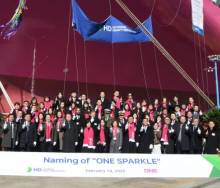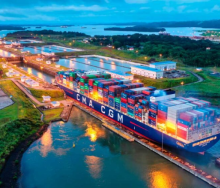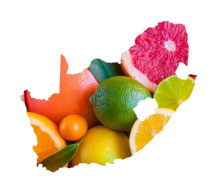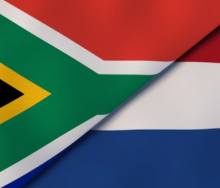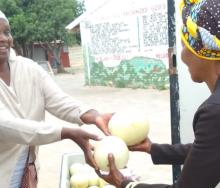Criminality among traffic sector officials tasked with enforcing law and order and road user attitudes are major contributors to South Africa’s life-threatening road safety situation, government executives told a panel discussion on the topic this Monday.
Speaking a day after the Arrive Alive campaign for the upcoming festive season was launched, transport minister Sindisiwe Chikunga said it was unacceptable that about 40 people die every week on the country’s roads.
Underscoring the stark reality of having a monthly death toll of about 1200 people killed in collisions, is the success with which road safety in other African countries is applied.
This has enabled a comparatively low fatality rate of about 200 people annually, Chikunga told a Road Safety Summit hosted by Uber and the Road Traffic Management Corporation.
She said the same could be achieved in South Africa if the culture of impunity among road users was changed and bribery and corruption rooted out.
“We have become used to road fatalities.
“Since 1994, there have been about 5.5 million more cars on the country’s roads, up from 12.9 million vehicles. So, it was unavoidable that there would be an increase in road fatalities.
“What makes it worse is that people think they can drive at whatever speed they want to, drive cars without number plates and generally do as they wish.
“We have an attitude problem in this country that you don’t see anywhere else.”
If this was changed, Chikunga said, last year’s festive season road fatality figure of 1 599 could be substantially reduced.
Fellow panel speaker and CEO of the Road Traffic Management Act, Makhosini Msibi, said it doesn’t help that there are so many fraudulent licenses being issued.
He said in one case in Mpumulanga, the RTMC found that R225 000 was made in one day through the issuing of fraudulent licenses for heavy vehicles.
Msibi, who is an advocate, said there is something seriously wrong with the justice system in South Africa when a truck driver responsible for causing an accident in which 18 people died is charged with culpable homicide instead of murder.
Kedibone Tlabela, Gauteng’s MEC for Roads and Transport, said South Africa needs a culture shift away from current attitudes about driving.
“We need to ask ourselves what it means to have a license.
“Matriculants and school leavers feel it is the next important thing to do, getting a license and when something happens, traffic officers ask if people are insured or not and leave it at that.”
It means that the presence of the insurance industry, where costs of well over a billion are ratcheted up every year because of road incidents, appear to supersede the importance of avoiding incidents in the first place, Tlabela said.
“We should be asking questions about drivers and law enforcers.”
To this Chikunga said it has been found that about 75% of accidents are caused by young, black men.
She added there is also a distinct link to tertiary education facilities, sport and alcohol abuse in certain areas.
“We need to find out from tertiary institutions what their level of responsibility is.”
Chikunga added that in 2020, when Covid-19 lockdown regulations restricted the sale of alcohol, drink-related incidents fell below 10 000 a month.
“In 2021 (after alcohol became available again) that figure had increased to 12 500. We should not be living in a country where alcohol is so freely available.
“We can live beyond the festive season.”


